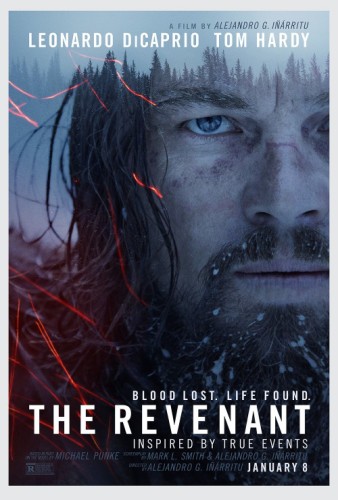
Based on true events and Michael Punke’s novel, a frontiersman in the 1820’s sets out on an epic survival journey for vengeance after being left behind following a bear mauling.
A visceral, immersive experience, Alejandro González Iñárritu returns to directing “The Revenant.” The film opened everywhere on Jan. 8 and The DePaulia sat down with one of the stars of the film, Will Poulter.
The DePaulia: This is an extremely intense script. What did you bring to your character and how did you approach the role of Jim Bridger?
Will Poulter: I didn’t know much at all about the trapping community or what it meant to be a trapper. I quickly learned after reading the script and talking to some historical professionals that these were some incredible tough men that risked their lives in harsh conditions to trap fur and pelts. They came from all corners of the world in order to do this. I knew I was in for an intense time.
I Googled Jim Bridger who Alejandro informed me was kind of a famous man and was fortunate enough to have quite a lot of information on Jim. Alejandro, the writer, and myself designed a personality that was independent of what history had recorded. I knew Jim went on to be a famous and a pretty well respected guy, I think what we tried to bring to Jim’s personality is the concept of a boy that is not quite a man and who is trying to mature in these difficult circumstances and bridge the gap (pun intended) between boy and man. It was about playing that inner turmoil and the confusion.
DePaulia: How did the shooting schedule limit, or perhaps enhance, your ability as an actor that you didn’t have in previous roles?
WP: It was unique because unlike any other movie I’ve done, 90 percent of the day was spent rehearsing and 10 percent spent shooting.
When I say rehearsing, that was including the camera, but the actual window was when the light was in the correct place in the sky and once everything was coordinated, plotted and put together, we did have a small time to capture it.
You think that would be constraining or that we would feel limited by it, but it actually gave us a focus point everyday. We came in every day and knew we would be shooting between 4:30 and 6 so lets make sure that we do everything possible to ensure that we nail it in that window. It fueled us with a focus and a drive. It was great. It was something I have never experienced before, and it was easy to stay in character because we were constantly on.
DePaulia: How did the physical conditions of the shooting locations impact the project?
WP: A lot has been made of the weather conditions about them being brutal, but as hard it was to work through those conditions and the climate, it was absolutely necessary.
It is one of the most beautiful and visually stunning films I have ever seen. Shooting on location in natural light and in those actual conditions was necessary to create the immersive and stressful experience of watching the movie. There was no way of manufacturing that or fabricating it in any way. We could have been in a studio with snow blowers and wind machines but for me it wouldn’t create the movie that we have.
I feel really lucky that I got to experience what it’s like to make a movie like back in the day, you know good, old-fashioned, old school filmmaking. I’m very honored that the project is as high quality as it is.
DePaulia: Alejandro specializes in his long, wide shots. The opening sequence is just this; how was it preparing and executing that scene?
WP: It was so fun. That was a masterful piece of camera work because frighteningly large proportions of that are one long shot, but there were also some clever stitches where he (Alejandro) brings together two shots pretty seamlessly.
My section was near the beginning and it all played in one shot. I come up from the trees, the guy gets the arrow through the neck, I’m looking around, the camera is tracking us, it was a good minute and it was great to be part of those signature camera moves that make him so famous.
DePaulia: Working on this project with the stellar cast and crew, what did you learn that you wish to take with you as you further your career?
WP: I think something that I always felt strongly about and enjoyed is teamwork. It’s very helpful when everyone operates as a team and if you operate as a bunch of individuals, you are destined for failure. This was a great example that solidified that for me. Our best days of work are when we pulled together and worked for one another. I will definitely take that forward with me. I also explored my own personal limits in terms of what I can endure and how long I can spend time in character or how long I can last in a sense. It’s given me resilience because I think this is the hardest thing I’ve ever shot.

